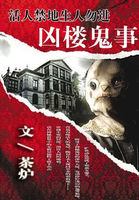Instead of one Church, it maintains four, while the principal one, the Catholic, comprising 33 million followers, and more dependent than under the old monarchy, loses the privileges which once limited or compensated it for its subjection. - Formerly the prince was its temporal head, on condition that he should be its exterior arm, that it should have the monopoly of education and the censorship of books, that he should use his strong arm against heretics, schismatics and free-thinkers. Of all these obligations which kings accepted, the new sovereign frees himself, and yet, with the Holy See, he holds on to the same prerogatives and, with the Church, the same rights as his predecessors. He is just as minutely dictatorial as formerly with regard to the details of worship. Sometimes he fixes the fees and perquisites of the priests for administering the sacraments: "This charge is a purely civil and temporal operation, since it resolves itself into a levy of so many pence on the citizen. Bishops and priests should not be allowed to decide here.[52] The government alone must remain the arbiter between the priest who receives and the person who pays." Sometimes, he intervenes in the publication of plenary indulgence: "It is essential[53] that indulgences should not be awarded for causes which might be contrary to public order or to the welfare of the country; the political magistrate is equally interested in knowing what the authority is that grants indulgences; if its title to act is legal, to what persons indulgences are granted, what persons are entrusted with their distribution, and what persons are to fix the term and duration of extraordinary prayers." - Thus bound and held by the State, the Church is simply one of its appendices, for its own free roots by which, in this close embrace, it still vegetates and keeps erect have all been cut off short; torn from the soil and grafted on the State, they derive their sap and their roots from the civil powers. Before 1789, the clergy formed a distinct order in temporal society and, above all others, a body possessing property and exempt from taxes, a tax-payer apart which, represented in periodical assemblies, negotiated every five years with the King himself, granted him subsidies and, in exchange for this "disinterested gift," secured for itself concessions or confirmations of immunities, prerogatives and favors. Today, it is merely a collection of ordinary individuals and subjects, even less than that - an administrative staff similar to that of the university, of the magistrature, of the treasury, and of the woods and forests, even more closely watched and bridled, with more detailed precautions and stricter interdictions. Before 1789, the curés and other second-class officials were, for the most part, selected and installed without the prince's intervention, sometimes by the bishop of the diocese or a neighboring abbé, sometimes by independent collators, by the titular himself,[54] by a lay patron or a chapter, by a commune, by an indultaire, by the pope, while the salary of each titular, large or small, was his private property, the annual product of a piece of land or of some indebtedness attached to his office and which he administered. Nowadays, every incumbent, from the cardinal-archbishop down to a canon, cantonal curé, and director or teacher in a seminary, is appointed or accepted by the civil power to which he swears fidelity. His salary, set down in the budget, is simply that of a public employee, so many francs and centimes for which he comes monthly to the office of the treasury paymaster, along with others of his colleagues who are employed by the State in non-Catholic cults, together with others, his quasi-colleagues, whom the State employs in the university, in the magistrature, in the gendarmerie, and in the police.[55] Such, in all branches of social life, is the universal and final effect of the Revolution. In the Church, as elsewhere, it has extended the interference and preponderance of the State, not inadvertently but intentionally, not accidentally but on principle.[56] "The Constituent" (Assembly), says Siméon, "had rightly recognized that, religion being one of the oldest and most powerful means of government, it was necessary to bring it more than it had been under the control of the government." Hence, the civil constitution of the clergy; "its only mistake was not to reconcile itself with the Pope." At present, thanks to the agreement between Pope and government (Napoleon, First Consul), the new régime completes the work of the ancient régime and, in the Church as elsewhere, the domination of the centralizing State is complete.
VI. Napoleon Executes the Concordat.
Reasons for suppressing the regular clergy. - Authorized religious associations. - The authorization revocable.















